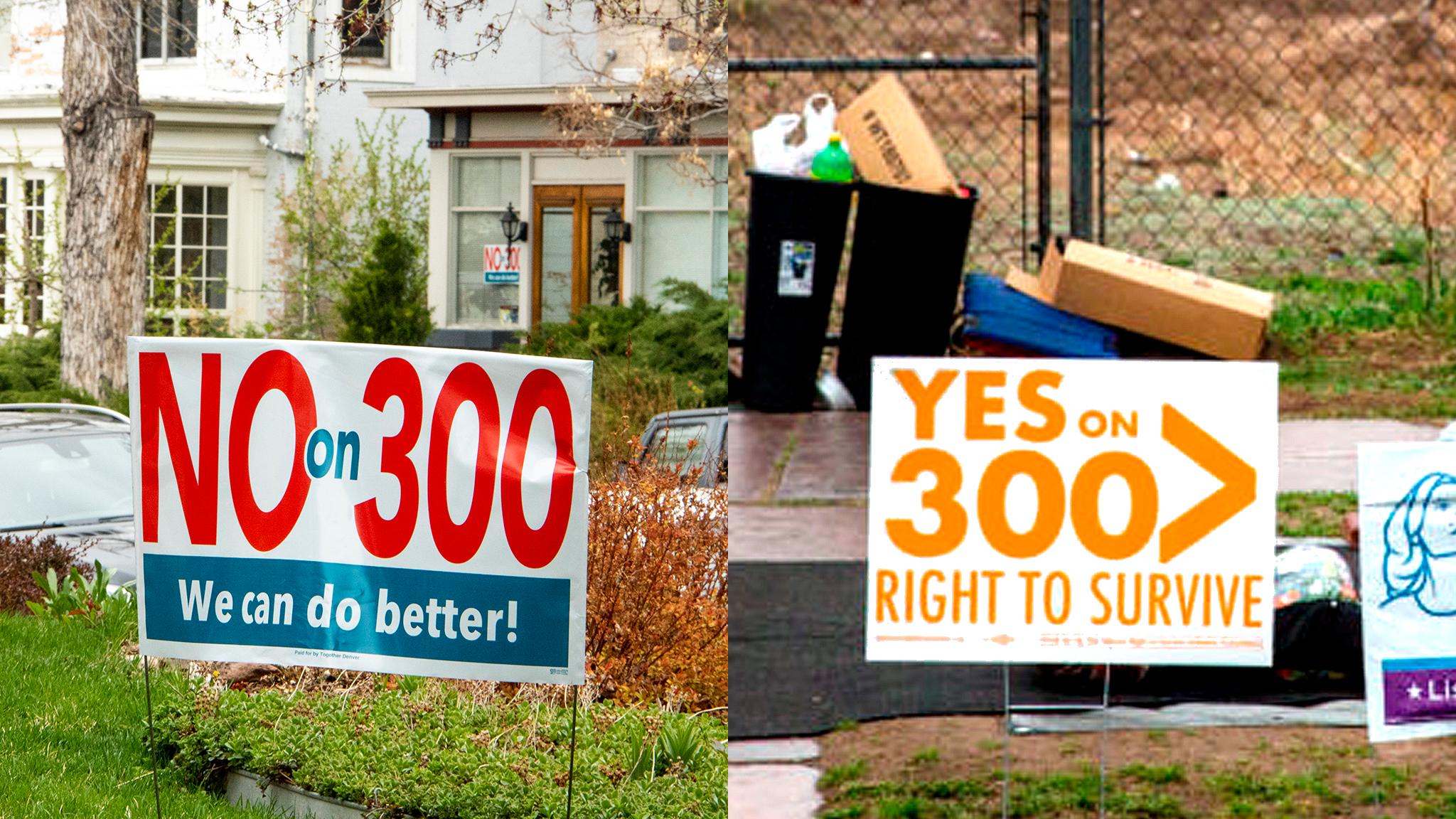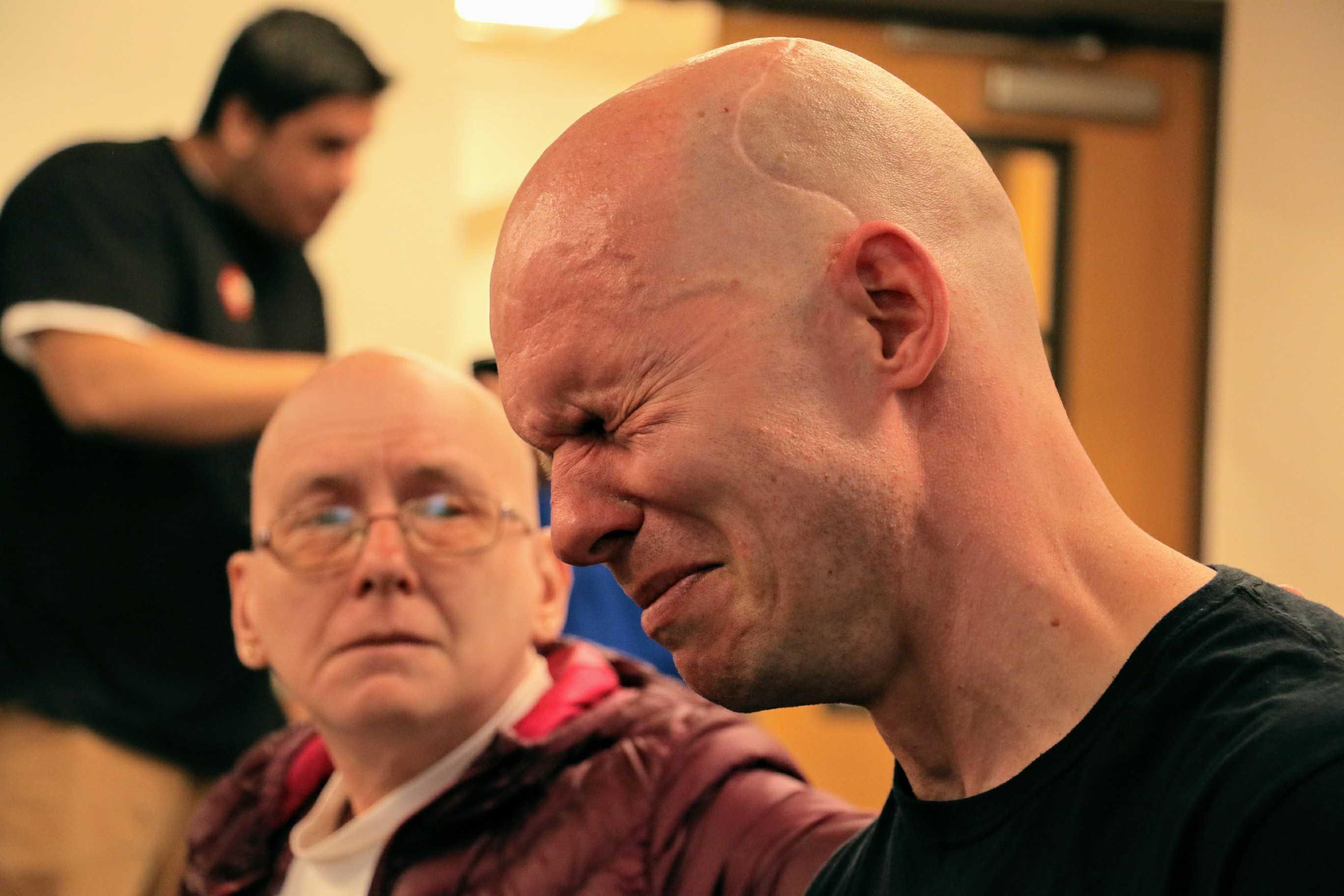Business and policy leaders ran a successful campaign to save Denver's urban camping ban under the slogan: "We can do better!"
Let's talk about that.
Together Denver, which drew on money and contacts from groups such as the Downtown Denver Partnership and the National Association of Realtors to fight 300, had argued allowing encampments as the initiative proposed was the wrong approach to homelessness in the city. Together Denver never claimed to have the answers for how the city can do better. It underlined that in a sober response to the early and decisive demise in Tuesday's municipal elections of Initiative 300, also known as the Right to Survive.
"Homelessness and housing are complex issues that demand thoughtful solutions," said Roger Sherman, who managed the no campaign and works for the prominent public affairs firm CRL Associates. "We need both short-term action and long-term commitment. We are encouraged by the broad and diverse group of community leaders who engaged in the campaign and we hope that those folks - faith leaders, neighborhood organizations, park advocates, service providers, business groups and everyday residents, housed and unhoused - will work together moving forward to advance practical approaches to supporting people experiencing homelessness today and address the underlying drivers of homelessness in Denver."
Some ideas are coming from Denver Homeless Out Loud, the grassroots group that includes people experiencing homelessness and that got 300 on the ballot.
"We want real housing. We don't want this shelter shit," said Jerry Burton, a Denver Homeless Out Loud activist who has lived in tent camps in Curtis Park.
Burton also said he would be lobbying the mayor and city council for more tiny home villages and authorized encampments, alternatives to a shelter system he says harbors criminals.

Two candidates emerged from a crowded mayoral field that also was on the ballot Tuesday. One, Jamie Giellis, has said she opposes the camping ban but did not see 300 as the answer. Giellis has also called for authorized camping. Other cities have experimented with such government-backed camps, some run by nonprofits, in which tents or prefab structures are set up and security and social services provided.
"We have an immediate need for temporary solutions," Giellis said at a campaign housing forum in April. "We need places for people to go where we can get services to them."
Incumbent Michael Hancock, who faces Giellis in the June 4 runoff, supports the camping ban, as he did when it was adopted by City Council in 2012. A campaign aide said after the April forum that Hancock would be willing to discuss sanctioned camps.
City Councilwoman-at-large Robin Kniech, who opposed Hancock on the camping ban in 2012 and continues to do so, has called for improvements in the shelter system, more options for people who won't or can't use shelters and more investment in supportive housing. Kniech, who won re-election Tuesday, also said resistance in some communities to hosting homeless services also needs to be addressed to reduce another barrier to progress.
"I'm not participating in any campaign around 300, because neither side is talking about proven solutions or standing up to advocate for the funding and policies we need," Kniech said in a campaign essay emailed to supporters and posted on her website.
Hancock's administration announced in April that it planned to create a new Department of Housing and Homelessness to address a lack of coordination and clear leadership about which observers have been complaining for years. Hancock also announced that $15.7 million of city, business and philanthropic money will be spent over the next three years to get people off the streets and into housing and shelter. Most of that is for day shelters and the city is seeking input from service providers as to what those might look like.
Cathy Alderman, vice president of communications and public policy for Colorado Coalition for the Homeless, said Denver could look to cities such as San Francisco and Houston, which in addition to providing places for people in homelessness to spend the days to ensure that such day shelters are also points of contact for people seeking help finding jobs and services.
As housing prices in metro Denver have skyrocketed and incomes stagnated, the face of homelessness has changed. Shelters built for single men have had to adapt to serve women with children, the elderly and more.
"We've got to continue to work on shelter for families," said Mike Sinnett, vice president of shelter services for Catholic Charities.
Catholic Charities recently suspended services for families at its Samaritan House shelter in Denver for a renovation project that will by the fall result in four more rooms on its family floor, bringing the total to 25.
Sinnett said solutions include services such as mental health and financial counseling to keep people in housing once places are found, and steps to ensure families don't end up on the streets in the first place. Such solutions aren't cheap, he said.
Alderman said her coalition has been pressing the Hancock administration to find $50 million a year to fight homelessness. She added Wednesday that the coalition would keep pushing for that no matter who takes over as mayor. And if lobbying the mayor doesn't work, the coalition might go to the voters to request the money.
Alderman said on Colorado Public Radio that the discussions she's heard during the 300 campaign have convinced her that people "really do want to see the city of Denver address homelessness in a compassionate way and in a resourced way."
But Donald W. Burnes, founder of the University of Denver's Burnes Center on Poverty and Homelessness, said a perception people living in homelessness are "lazy, crazy, drunks and druggies" can be a barrier to taking action to help -- and may have played a part in the lop-sided vote to retain the camping ban.
"I think the voters really were saying, 'We don't want to see these people on the streets,'" he said. "For most people, most of those experiencing homelessness are unworthy. That ignores so much of what we know about housing and rent (prices) and the availability of services."
It also ignores the large segment of working poor among the homeless, and that most are not substance abusers.
If Burnes sees a glimmer of hope, it's in the coincidence of people living in homelessness wanting to be in houses and other people wanting them out of sight.
"In essence, both sides want people to get off the streets," he said. "How can we get the two sides together to achieve a mutually acceptable goal? How can we end the strong partisanship and create a quote, bipartisan, unquote, effort to address the problem?"
Burnes said that when the camping ban was passed in 2012, he also heard promises that the city would improve its approach to homelessness.
That "really hasn't happened," he said. "What I'm afraid is going to happen (after the 300 vote) is essentially the same. We can do better? Of course we can do better. But will we?"














